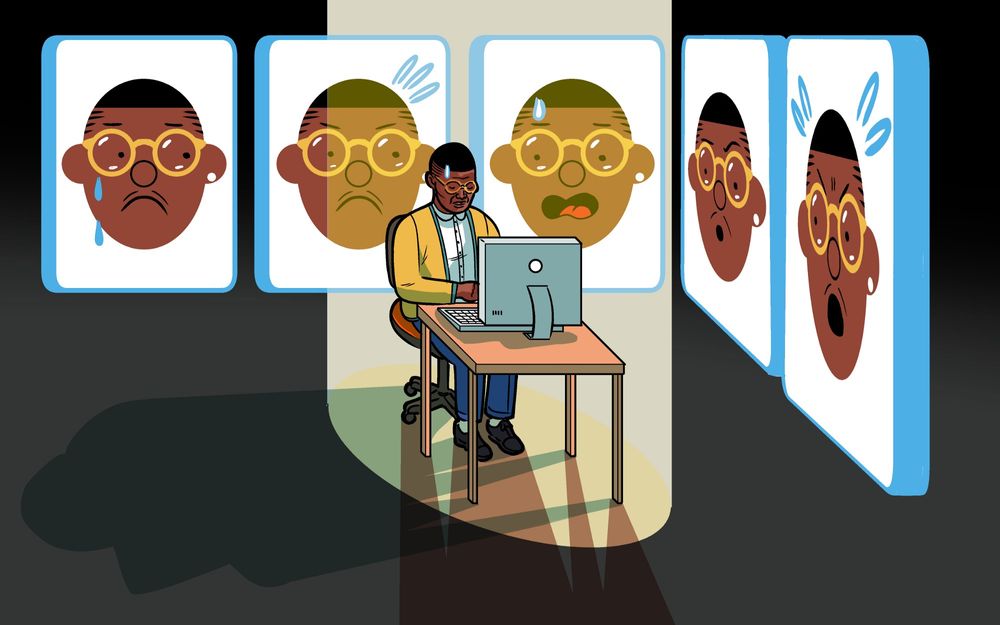A couple of weeks ago, I poured out a lil’ liquor for the homie. I knew Ryan would leave us eventually; I just wasn’t ready to see his time come so soon. But I’m finding solace in the fact that he’s moving on to a better place — a land where vacation time is unlimited, gym reimbursements are plentiful, and 401(k) funds get matched. Ryan got a new job.
No matter the reason, it’s tough to see colleagues leave for greener pastures, especially the ones who are part of your daily routine. Even teammates you think of as acquaintances provide some semblance of equilibrium, an inextricable part of your office ecosystem. When that team member is someone you’re cool with, it can alter your experience even more. And it hits the hardest when said co-worker is one of the few people of color on an otherwise blacktose-intolerant staff.
For me, Ryan represented both. Black folks feel like an endangered species at my gig, and with his exit from the company, our population dipped by, like, 17%. (You do the math. It’s not all good.) That’s one fewer person to understand the weird lived experience of being Black in corporate America, to represent a common perspective, to understand the same cultural references, to speak a similar language. For me, the feeling of being left behind rubs up against an urge to take up a little more space.
Even before the phrase “home office” became redundant, Ryan was the glue guy in our work clique, and in quaran-times that was damn near indispensable. Our private Slack channel replaced the lunch chatter we used to share IRL, and he kept it active, checking in on folks throughout the pandemic, lifting spirits with memes, sharing his WandaVision theories. Ever since he left, the room has been a lot more subdued; going a man down has thrown the whole dynamic out of whack.
Did massa see Black folks congregating and becoming too powerful on his plantation, thus feeling the need to break things up? Probably not. But it sure did feel like it.
I appreciated the heads-up he gave me before he sent his company-wide “sayonara, folks” email announcing his last date of employment and personal contact information. It softened the bittersweet blow. I’m glad to see Ryan go thrive in a new role on his own terms, but I’d be feeling a lot differently if he’d been laid off.
At a past job, Priya and I climbed the ladder pretty quickly. We were at comparable levels in our careers, making similar salaries, motivating each other and killing it in our roles all the while. Yet, somewhere along the way, someone in leadership fucked up — and the next thing we knew, a wave of layoffs came through and swept away a significant chunk of the company’s employees. Priya, who is Black and Filipino, asked her superiors about what was going down, and specifically whether she was on the chopping block. They assured her that she had nothing to worry about.
The following week, she received her termination notice and severance documentation.
Once that happened, I started looking at these shady-ass execs differently. There were already only four Black employees at the job in total, and one of the layoffs just had to affect a truly dope middle manager who brought in a bunch of new accounts and ran her projects with ease? It felt like our tribe was under attack. Did massa see Black folks congregating and becoming too powerful on his plantation, thus feeling the need to break things up? Probably not. But it sure did feel like it. And if Priya could get laid off, I figured any day could be my last on the job.
Unfortunately, two weeks later, I was proven to be right. I had a sneaking suspicion that had Priya and I taken part in more of the reindeer games that our bro-y White co-workers swore by, we might have survived the tsunami. The whole ordeal was another reminder that no matter how well I’m performing at work, the rug can be pulled from under my feet at any moment.
Still, the survivor’s guilt around staff changes isn’t all dark. When colleagues leave the company, they always land somewhere else — which only helps to expand one’s network. I’m grateful for the time I worked with Ryan, as well as all of the Black colleagues with whom I’ve truly connected throughout my career. I’ll continue to rep for them; when it’s time to start obsessing over my LinkedIn account and fishing for a new job, let’s just hope they do the same for me.
